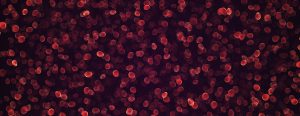Fri May 15 19:29:34 2020
<9e126bf3> > “Low vitamin D intake and status have been reported *worldwide* and many studies have suggested that this low status may be involved in the development of several chronic diseases. There are a limited number of natural dietary sources of vitamin D leading to a real need for alternatives to improve dietary intake. Enhancement of foods with vitamin D is a possible mode for ensuring increased consumption and thus improved vitamin D status. The present review examines studies investigating effects of vitamin D enhanced foods in humans and the feasibility of the approach is discussed.”
> “These findings corroborate those of a number of other studies that have demonstrated that mortality is greatest amongst individuals with the lowest vitamin D status”
<https://www.ncbi.nlm.nih.gov/pmc/articles/PMC3260490/>
— The Potential Role of Vitamin D Enhanced Foods in Improving Vitamin D Status
— Low vitamin D intake and status have been reported worldwide and many studies have suggested that this low status may be involved in the development of several chronic diseases. There are a limited number of natural dietary sources of vitamin D leading …

<9e126bf3> > “Iron also is needed for proper immune function.”
> “About 25 percent of the iron in the body is stored as ferritin, found in cells and circulates in the blood. The average adult male has about 1,000 mg of stored iron (enough for about three years), whereas women on average have only about 300 mg (enough for about six months). When iron intake is chronically low, stores can become depleted, decreasing hemoglobin levels.”
<https://www.ucsfhealth.org/education/hemoglobin-and-functions-of-iron>
— Hemoglobin and Functions of Iron
— Iron is an essential element for blood production, and about 70 percent of your body’s iron is in the red blood cells called hemoglobin. Learn how the body stores iron and how to make sure you get enough.
